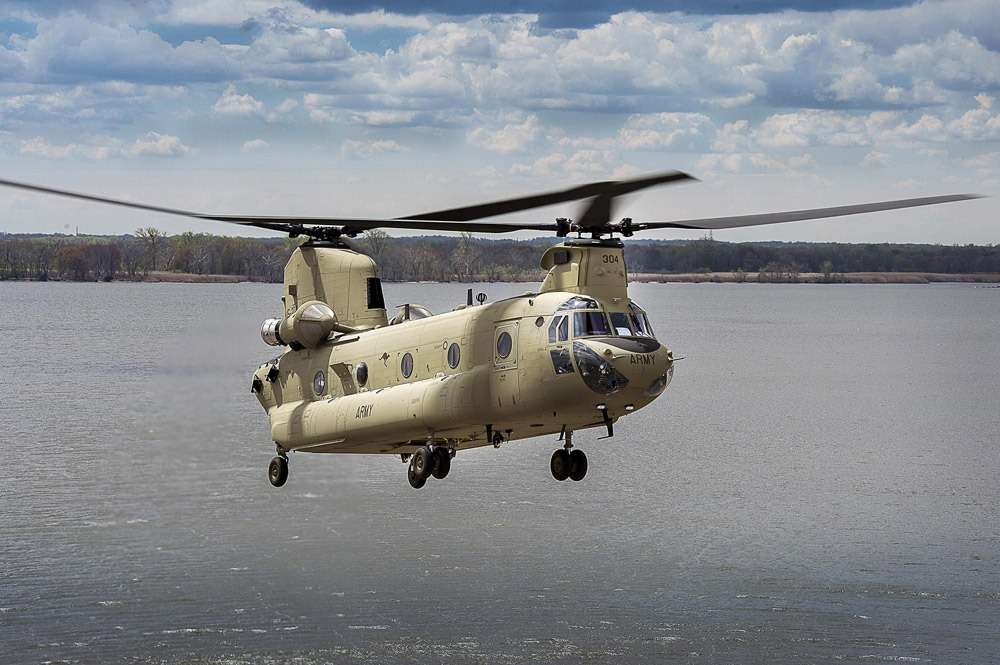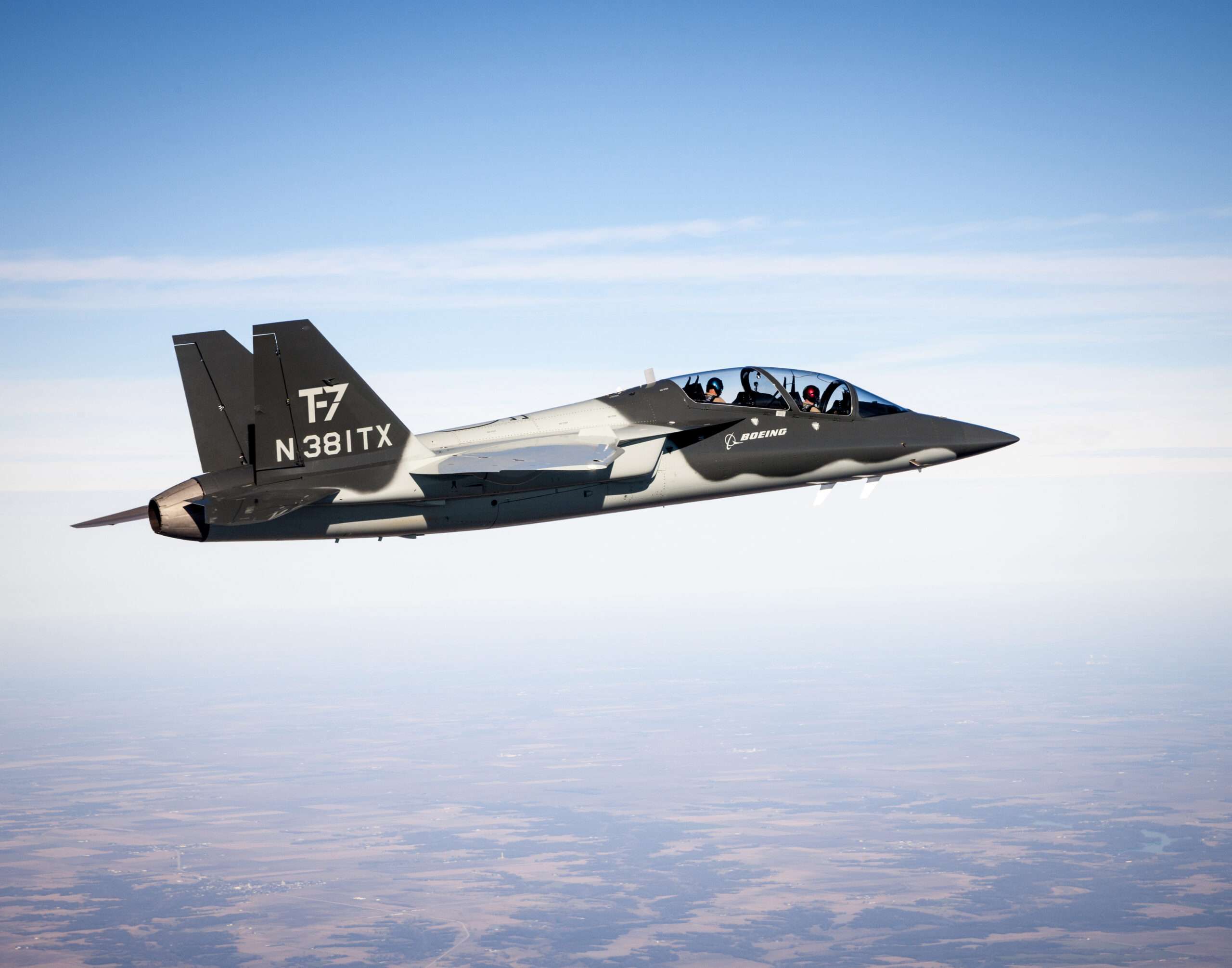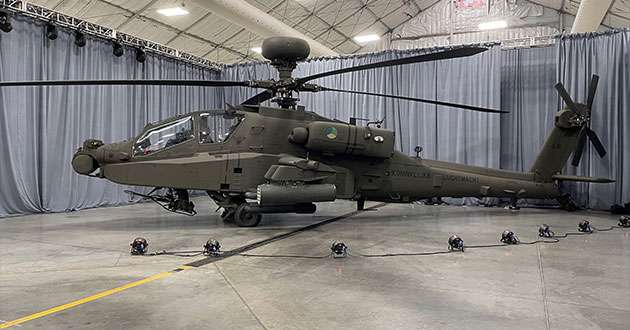
In this exclusive interview conducted by Defense Arabia, Kirk Schultz, Boeing’s Regional Director of International Business Development, shares insights into the long-standing partnership between Boeing and Egypt, which has spanned nearly six decades.
Schultz discusses key milestones in Boeing’s support of the Egyptian Air Force, including the ongoing modernization of their Apache and Chinook helicopter fleets, and the introduction of advanced aviation technologies like the T-7A training system.
He also explores Boeing’s broader role in Egypt and the MENA region, highlighting how the company’s efforts extend beyond defense systems to foster economic development, job creation, and technological advancement.
Through his expert perspective, Schultz sheds light on Boeing’s strategic vision in the region, the importance of the Egypt Airshow for showcasing cutting-edge capabilities, and how Boeing’s relationship with Egypt exemplifies a partnership built on trust, innovation, and mutual growth.
And that’s how the interview unfolded:
How has Boeing’s relationship with Egypt evolved over the decades, and what factors have contributed to this long-standing collaboration?
Kirk Schultz: Boeing and Egypt have been partners for almost 60 years. It all started with Egypt’s acquisition of the Phantom for its Air Force. Since then, we’ve continued to build on that foundation. Today, Egypt operates the AH-64D, and they are currently transitioning those to the latest AH-64E variant, which is the most advanced version of the Apache. Additionally, Egypt uses the CH-47D, and they’re under contract to procure the new CH-47F Chinooks. We anticipate they’ll move forward with acquiring additional Block 2 Chinooks.
What have been some of the key milestones in Boeing’s partnership with the Egyptian Air Force?
Kirk Schultz: Over the course of 60 years, we’ve worked closely with the Egyptian Air Force to meet their defense needs. The most significant milestones are our ongoing contracts to deliver the newest Apache and Chinook helicopters. We’re proud to continue providing Egypt with cutting-edge defense capabilities, ensuring they have the tools to support both regional and domestic security.
How does the Chinook’s versatility make it an invaluable asset to various missions?
Kirk Schultz: The Chinook is the leading heavy-lift helicopter globally, recognized for its versatility. We have a very active production line for it. The latest version, the Block 2, which we expect Egypt will be procuring, features an all-digital cockpit, enhanced fuel systems, and structural upgrades that ensure it remains operational well into the future.

What are the benefits of Egypt’s purchase of 12 new Chinooks? How will it enhance their military capabilities?
Kirk Schultz: The Chinook provides Egypt with the ability to meet its defense, disaster relief, and heavy-lift requirements. Its versatility allows it to transport supplies and capabilities not only within Egypt but across the region. The Chinook is a globally recognized platform, known for both its capabilities and the strength of its brand.
How does the T-7A’s design and technology incorporate the latest advancements in aviation training?
Kirk Schultz: The T-7A is a cutting-edge aircraft with an all-digital cockpit— the first of its kind. It’s a program of record for the U.S. Air Force and will soon replace the T-38 as the primary training aircraft. Its digital design allows for greater flexibility in pilot training, preparing them for advanced platforms. The T-7 also has the potential to be adapted for multiple roles beyond just training, adding even more value.

What role does the Advanced Pilot Training System (APTS) play in the overall T-7 training experience?
Kirk Schultz: The APTS’s digital capabilities play a crucial role in preparing pilots for their next aircraft. It’s a new concept where pilots are trained using a digital system, offering a cost-effective and sustainable solution for primary training.
How does the Apache enhance Egypt’s military capabilities?
Kirk Schultz: The Apache is recognized worldwide as the premier attack helicopter. Egypt is upgrading their current fleet to the AH-64E, ensuring they have the most advanced attack helicopter, in line with the U.S. Army. This upgrade allows Egypt to stay aligned with the U.S. Army’s supply chain and operational standards.

What are the key challenges and opportunities facing Boeing in the Middle East and North Africa (MENA) region?
Kirk Schultz: While there are challenges, such as supply chain issues and inflation, we see the MENA region as a land of opportunity. Egypt and the Middle East present significant prospects for Boeing. We offer capabilities that other defense suppliers cannot match. And Boeing isn’t just selling a product—we’re selling a relationship.
In your opinion, what value does Egypt Airshow provide for showcasing Boeing’s products?
Kirk Schultz: The Egypt Airshow is an excellent platform for Boeing to connect with our key customers. The show did very well in its first iteration. The strong presence of the Egyptian military, along with the international representation, provides us with great opportunities to engage not only with Egypt but also with our customers from across the region and the world.
How does Boeing envision the economic impact of its collaboration with Egypt, particularly in terms of job creation and local industry development?
Kirk Schultz: Boeing’s collaboration with Egypt is a true partnership, not just a customer relationship. We aim to bring not only products but also economic growth, leveraging the local population and fostering job creation. We’ve invested heavily in STEM education and research to support Egypt’s economic development.






Be the first to comment